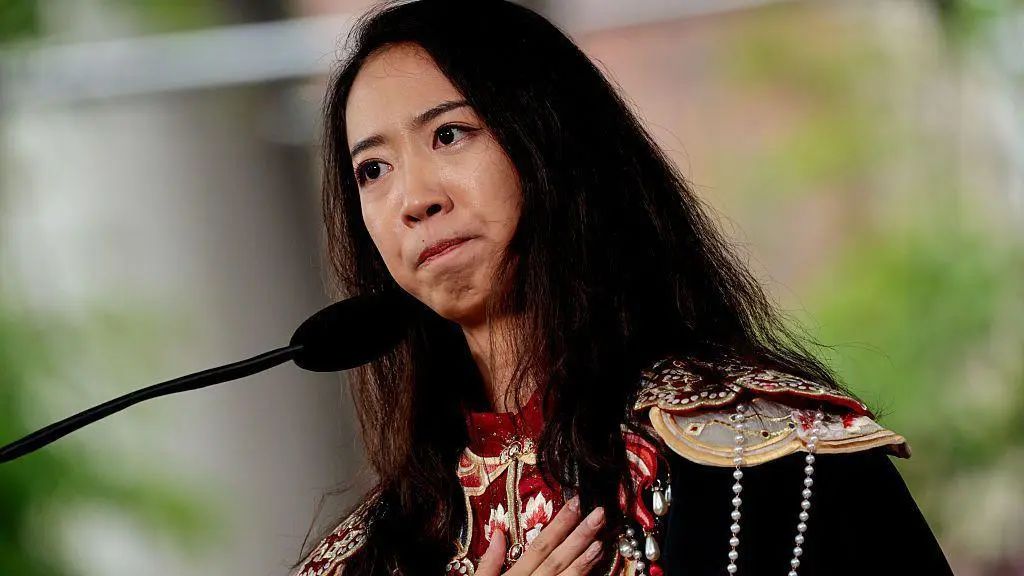
Jiang Yurong, the first Chinese woman to address a Harvard graduation ceremony, delivered a speech that quickly went viral, drawing widespread praise, skepticism, and intense scrutiny in both China and the U.S. However, shortly after her speech gained traction, doubts arose about her background and the legitimacy of her academic journey. On a Weibo account believed to be hers, Jiang shared personal reflections on her upbringing in China, revealing a childhood marked by hardship and resilience.
Jiang recounted how her parents separated and later divorced, with her father largely absent from her life. She and her mother moved frequently, changing homes and schools constantly. She attended a poorly resourced middle school in Qingdao through a random lottery system, where most classmates were children of migrant workers or small business owners. Many had to work after school to help their families. With no support at home or school, Jiang endured severe bullying—groups of girls would drag her outside, strip her clothes, and humiliate her. Fearing ambushes, she often hid in bathroom stalls for hours after school, waiting until dark to go home. In the absence of comfort, she turned to books, reading everything she could find in search of answers to the world.
Years later, in her Harvard graduation speech, Jiang echoed her younger self’s pain: “If there is a girl in this world who is afraid to go to school for fear of harassment, then my dignity is equally under threat.” Her words resonated deeply, but the controversy over her past has cast a shadow over her achievements, sparking debates about authenticity, privilege, and the weight of personal narratives in public discourse.






